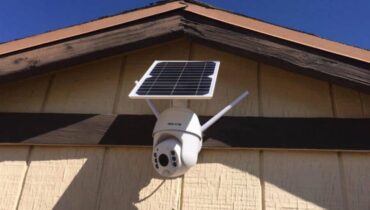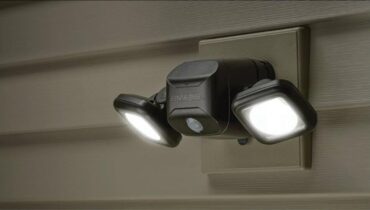Table of Contents
In today’s eco-conscious world, more and more RV enthusiasts are turning to solar panels as a sustainable and efficient way to power their mobile adventures. Whether you’re a full-time RVer or someone who enjoys occasional road trips, adding solar panels to your RV can be a game-changer. Not only does it reduce your dependence on traditional power sources, but it also allows you to explore off-grid destinations without sacrificing the comforts of home.
In this comprehensive guide, we’ll walk you through the process of adding solar panels to your RV, ensuring you have all the information you need to embark on a greener and more energy-efficient journey. From understanding the installation steps to evaluating the features of the best RV solar panels, we’ve got you covered for a seamless transition to solar power on your RV adventures.
RV Solar Panel Systems: Which Is Right For Me?
When it comes to RV solar panel systems, there are two primary options to consider: portable and permanent installations. Each has its own advantages and considerations, making it essential to choose the one that best suits your RV lifestyle. To make an informed decision, also explore options for the Best Solar Panels for RV to ensure you get the most efficient and suitable panels for your setup.
When choosing an RV solar panel system, consider your RVing style. If you prefer flexibility and frequent location changes, a portable system might be best. However, if you desire a more permanent and hassle-free solution, a fixed installation on your RV’s roof could be idea
1) The Portable RV Solar Panel System
When exploring the best portable solar panels, it’s important to note that these systems offer flexibility and convenience. They can be easily set up and adjusted to capture the maximum amount of sunlight throughout the day.
Portable RV solar panels offer versatility and ease of use. They can be positioned for maximum sun exposure and are perfect for travelers who like to adjust their panels frequently. These systems are excellent for short trips or those with limited roof space. excellent choice for RVers who frequently change locations and want the freedom to position their panels for optimal sun exposure.
2) The Permanent RV Solar Panel System
Permanent solar panel installations are securely mounted to the roof of your RV. While they require a bit more upfront work and investment, they offer a hassle-free, always-ready source of solar power. These systems are ideal for RVers who plan to use solar energy regularly and want a set-it-and-forget-it solution.
Permanent solar panel installations provide consistent power without the need for constant adjustments. They’re ideal for full-time RVers or those who want a “set and forget” solution. When it comes to the best solar chargers for backpacking, although installation may be more involved, the convenience they offer can prove to be well worth it in the long run.
How Many Solar Panels Do I Need To Run My RV?
Determining the number of solar panels required for your RV depends on your energy needs. To calculate this, you’ll need to consider both your watt usage and the capacity of the solar panels you choose. When seeking the best solar panels for RV battery charging, determining the right number involves two critical calculations: assessing your wattage usage and evaluating the capacity of the solar panels you choose.
Calculating Watt Use
Start by identifying the electrical appliances and devices you plan to power in your RV.List their wattage ratings and calculate the total daily watt-hour consumption. This forms the basis for your panel needs.
Calculating Number of Solar Panels Needed
To determine the number of solar panels you need, consider the panel’s capacity and the amount of sunlight available in your typical camping locations. Divide your daily watt-hour consumption by the number of daily sun hours to estimate the number of panels required. When selecting the best lithium-ion battery for RV solar, it’s crucial to factor in a margin for cloudy days and efficiency losses. Adding extra capacity to account for these variables ensures a more reliable power supply for your RV.
What Else Do I Need For My RV Solar Panels?
To create a complete RV solar system, you’ll need additional components that work in harmony with your panels. When determining what size generator for 30 amp RV, it’s important to recognize that while solar panels are a crucial component of your RV solar system, several other key elements work together to provide a seamless and reliable power source.
- Battery Bank: A battery bank stores the energy generated by your solar panels for use during the night or on cloudy days. Deep-cycle batteries designed for RVs are the most suitable choice.
- Inverter: An inverter converts the DC power stored in your batteries into AC power, which most of your RV’s appliances and electronics use.
- Charge Controller: A charge controller regulates the flow of energy from the solar panels to the batteries, preventing overcharging and extending battery life.
Is Installing RV Solar Panels Worth It?
Before you embark on your RV solar panel installation journey, it’s natural to wonder if it’s a worthwhile investment. The answer largely depends on your RVing habits and goals. If you value the freedom of off-grid camping, want to reduce your environmental impact, and seek long-term cost savings, then RV solar panels are undoubtedly worth the effort and expense. Exploring how to hook up solar panels to RV batteries reveals a greener, more self-reliant, and sustainable way to power your RV adventures. This approach ultimately enhances your travel experience with an eco-friendly and efficient energy solution.
The decision to install RV solar panels depends on your priorities. If you value energy independence, reduced costs, and eco-friendliness, RV solar panels are a worthwhile investment. While the initial cost and effort may be significant, the long-term benefits of sustainable, off-grid power make it a smart choice for many RVers.
Frequently Asked Questions (FAQs)
Q1: Are RV solar panels worth the investment?
A1: Yes, RV solar panels are a worthwhile investment for many RV enthusiasts. They provide energy independence, cost savings in the long run, and a reduced environmental footprint. The decision depends on your RVing habits and priorities.
Q2: Can I install solar panels on any type of RV?
A2: Solar panels can be installed on most RVs, including motorhomes, travel trailers, and campers. The key is to choose the right type and capacity of panels to match your RV’s power needs and available space.
Q3: How do I maintain my RV solar panel system?
A3: Maintenance is relatively simple. Keep the panels clean from dust and debris, check for loose connections, and monitor battery health regularly. Regular inspections will help ensure optimal performance.
Q4: Do I need a professional to install RV solar panels?
A4: While some RVers opt for professional installation, many install solar panels themselves. When evaluating the best RV solar kits, the abundance of DIY resources and kits offers options to suit varying comfort levels with electrical work and the complexity of your solar system.
Q5: How long do RV solar panels last?
A5: Quality solar panels can last 25 years or more with proper maintenance. However, electronics like charge controllers and inverters may need replacement or maintenance sooner.
Conclusion
Incorporating solar panels into your RV is a smart choice for those seeking a more sustainable and self-reliant way to power their adventures. Whether you choose a portable or permanent system, calculating your energy needs, selecting the right components, and proper installation are key to success.
RV solar panels offer the freedom to explore off-grid locations, reduce energy costs, and minimize your environmental impact. As you hit the open road with your solar-powered RV, you’re not just traveling; you’re leading the way towards a greener and more sustainable future.

